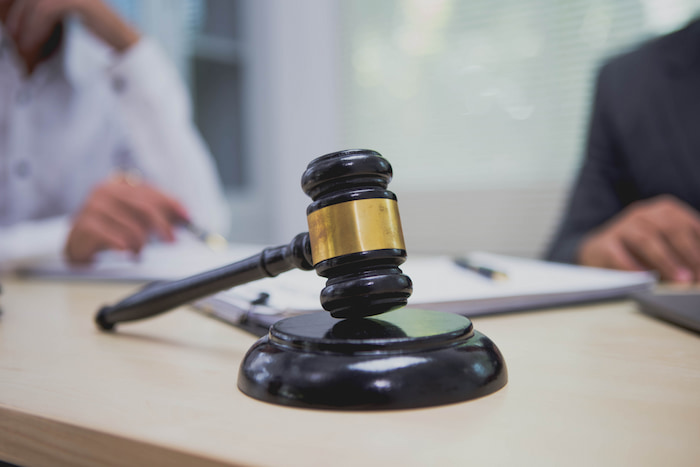
Were you injured in an accident? Was the accident due to someone else’s negligence or recklessness? If so, you could be entitled to recover compensation for the expenses and losses you suffer due to your injuries.
Whether you were involved in a car crash, a slip and fall, or another type of accident, you have an opportunity to hold the at-fault party accountable for their actions.
The Pasadena personal injury attorneys at Goldenzweig Law Group, PLLC, have the knowledge and skills to help you pursue the financial recovery you deserve and seek justice in your case. We are a full-service accident and injury firm. We have more than three decades of combined experience representing injury victims just like you.
Contact us today for a free, no-risk initial consultation.
Types of Personal Injury Claims We Handle
At Goldenzweig Law Group, PLLC, our lawyers have extensive experience handling a wide variety of personal injury cases, including:
- Car accidents: These occur due to negligence, reckless driving, or intoxication, resulting in injuries to drivers, passengers, or pedestrians.
- Truck accidents: Involving commercial trucks, these can result in severe injuries or fatalities due to the size and weight disparity between trucks and other vehicles.
- Motorcycle accidents: These accidents often lead to serious injuries or fatalities due to the lack of protection for riders.
- Bicycle accidents: Collisions involving bicycles and vehicles or pedestrians can cause significant injuries to cyclists.
- Pedestrian accidents: Accidents involving pedestrians hit by vehicles or bicycles due to driver negligence or failure to yield.
- Bus accidents: Injuries sustained while traveling on buses due to accidents, collisions, or sudden stops.
- Slip and fall injuries: These occur on someone else’s property due to hazardous conditions like wet floors, uneven surfaces, or inadequate maintenance.
- Premises liability claims: Injuries resulting from unsafe or poorly maintained premises, including slip and fall incidents, inadequate security leading to assaults, etc.
- Dog bites and other animal attacks: Injuries inflicted by pets or other animals due to owner negligence or failure to control aggressive animals.
- Workplace injuries: Injuries sustained while on the job due to unsafe working conditions, inadequate training, or employer negligence.
- Traumatic brain injuries: Resulting from severe head trauma, leading to cognitive, physical, or emotional impairments.
- Back and spinal cord injuries: Can result from various accidents and may cause partial or complete paralysis, impacting motor function and sensation.
- Construction accidents: Injuries occurring on construction sites due to unsafe conditions, equipment failure, or lack of proper safety measures.
- Wrongful death: Cases where negligence or intentional actions result in someone’s death, allowing family members or dependents to seek compensation.
This list includes only a sample of the cases we handle. If you have questions about the types of cases we handle, our attorneys are available to discuss your situation and help you review your legal options.
Texas Personal Injury Laws
In Texas, personal injury claims often rely on proving negligence, which involves demonstrating that a person or entity failed to exercise reasonable care, resulting in injury or harm to another person.
To succeed in a personal injury claim based on negligence in Texas, the following important elements need to be proven:
- Duty of Care: The plaintiff must establish that the defendant owed them a duty of care. This duty is often based on the relationship between the parties or the circumstances surrounding the incident. For instance, drivers have a duty to operate their vehicles safely to avoid harming others on the road.
- Breach of Duty: It must be demonstrated that the defendant breached their duty of care. This means they failed to act as a reasonably prudent person would under similar circumstances. For example, a breach of duty could occur if a property owner neglects to address known hazards on their premises.
- Causation: There must be a direct link between the defendant’s breach of duty and the plaintiff’s injuries. It must be shown that the defendant’s actions or negligence directly caused the harm suffered by the plaintiff.
- Proximate Cause: The harm suffered by the plaintiff should have been a reasonably foreseeable consequence of the defendant’s actions or negligence. This element ensures that liability is limited to the foreseeable consequences of the defendant’s actions.
- Damages: Actual damages, such as physical injuries, medical expenses, lost wages, pain and suffering, or property damage, must be proven. Without actual damages, there is no basis for a personal injury claim.
Remember, Texas also follows a modified comparative negligence system. This means that if the injured party is found partially at fault for the accident, their compensation may be reduced in proportion to their percentage of fault. However, if the injured party is deemed more than 50% at fault, they may be barred from recovering any damages.
What Is the Process of Filing a Personal Injury Claim in Texas?
To file a personal injury claim, you will generally need to:
- Talk to a lawyer: Your attorney can offer you helpful legal advice and act as your advocate throughout the claims process.
- Conduct an investigation: Your attorney can launch a comprehensive investigation into the accident, gathering and preserving vital evidence to prove your case.
- Consult with experts: Your attorney may wish to consult with accident reconstructionists, medical experts, or other experts to help bolster your case.
- Document your injuries and losses: Your attorney can help you gather medical records, bills, receipts, repair estimates, a record of your daily pain, and other information to document the extent of your losses.
- File an injury claim: Your attorney can file your injury claim on your behalf with the at-fault party’s insurer.
- Negotiate with the insurance company: Your attorney can handle all negotiations with the insurance company on your behalf.
- Resolve your case: Your case will likely either end with a negotiated settlement with the insurance company or proceed to trial through a personal injury lawsuit. Your attorney can help you review your legal options and determine the best course of action.
How Long Do I Have to File a Personal Injury Claim?
Many people choose to pursue compensation by filing an insurance claim with the at-fault party’s insurance company. You should consult with an attorney and report your claim as soon as possible after the accident since the claims process may take time.
In some cases, negotiations with the insurance company may not be fruitful. Insurance companies are for-profit entities whose chief goal is keeping their shareholders happy. As a result, insurance adjusters may use bad faith tactics to reduce or deny your claim, or they may simply be unwilling to offer you a fair amount. In that case, you may need to pursue compensation through a personal injury lawsuit.
Texas has a two-year statute of limitations on personal injury lawsuits. You will need to initiate legal action by filing a complaint within that time frame, or a judge will most likely dismiss your case, dashing your opportunity to seek compensation through the courts.
What Types of Compensation Can I Receive from a Personal Injury Case?
If you have been injured in an accident that was someone else’s fault, you could be eligible to claim compensation. Compensation is designed to cover expenses and losses you suffered due to the accident.
Depending on the circumstances of your case, you could be entitled to claim compensation for:
- Medical expenses: If you sustained injuries in the accident, you could be entitled to recover compensation for hospital bills, rehabilitative care costs, surgical costs, medication expenses, and more.
- Lost wages: If you cannot work for some time while you recover from your injuries, you might not be able to earn an income. You could pursue compensation for lost wages.
- Lost earning capacity: If you are temporarily or permanently disabled due to the accident, you might not be able to perform the full scope of your job-related duties. As a result, you might be placed on light duty or might see your income reduced. Some impairments could make it impossible to ever work again. In these cases, you could claim compensation for your lost earning capacity.
- Pain and suffering: You could also recover compensation for non-financial losses you suffered from the accident, including physical and emotional pain and suffering, mental distress, loss of enjoyment of life, post-traumatic stress disorder (PTSD), and more.
- Property damage: If any personal property was damaged during the accident, such as your vehicle, you could recover compensation to repair or replace it.
- Exemplary damages: Although exemplary or punitive damages are not frequently awarded by juries, you could receive exemplary damages if your injuries were the result of malicious intent or extreme recklessness.
When to Hire a Personal Injury Lawyer
It is always a good idea to hire a personal injury lawyer if you have been in an accident due to another person’s negligence. Not only is a personal injury lawyer intimately familiar with local and state laws that apply to your case, but they’ll also have the resources to handle every aspect of your case for you while you focus on your recovery.
A personal injury attorney will have the ability to thoroughly review your case, gather evidence and expert testimony, and craft a winning legal strategy on your behalf.
Call to Discuss Your Case
If you were injured in an accident caused by another person or entity, don’t hesitate to reach out to the attorneys at Goldenzweig Law Group, PLLC.
Contact us today for a free consultation with a caring and knowledgeable attorney.
